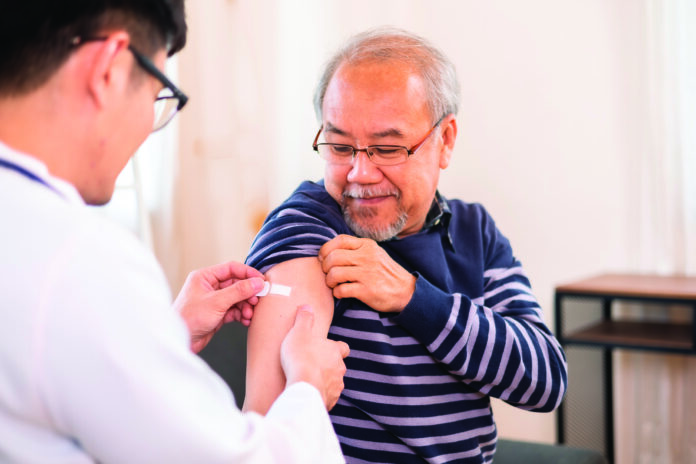(Family Features) Even though cooler days may seem far off, now is the best time to plan ahead for a healthy winter. One common respiratory illness, respiratory syncytial virus, or RSV, usually causes mild, cold-like symptoms, but it can be severe and even deadly for older people.
“As we grow older, our immune systems do not work as well and we are more likely to have chronic conditions, which means we are at increased risk of getting very sick from common viruses as we age,” said Alison Barkoff, who leads the Administration for Community Living within the U.S. Department of Health and Human Services. “Getting vaccinated is the best protection against fall respiratory viruses like RSV. It can help keep symptoms mild and help keep people out of the hospital.”
Here’s what older Americans need to know about RSV and vaccines this fall, according to the Risk Less. Do More. Public Education Campaign.
Prevention is key. The Centers for Disease Control and Prevention recommends that everyone 75 years and older get an RSV vaccine. Also, people between 60-74 should get vaccinated if they have conditions such as heart or lung disease, diabetes, obesity or a weakened immune system. The vaccine cuts the risk of hospitalization from RSV by at least half.
People living in nursing homes, assisted living or other long-term care facilities are at even higher risk. There are many people living together in these facilities who have medical conditions that make them more likely to get very sick. While vaccines may not always stop infection, they can prevent severe illness. So, vaccination is very important for residents of long-term care facilities.
RSV vaccines are available. Three RSV vaccines have been approved for older adults by the U.S. Food and Drug Administration. You only need a single dose that you can get at any time of the year, but getting the vaccine in the early fall offers the best protection for the late fall and winter, when RSV usually peaks. Getting the vaccine early gives your immune system enough time to build up protection.
RSV vaccines are the best protection. The RSV vaccines have gone through extensive testing. Last year, more than 20 million older adults were vaccinated safely. Mild side effects, such as pain, redness or swelling at the injection site sometimes happen, but they usually go away on their own in a few days. Serious allergic reactions from RSV vaccines are rare.
Prevention is the best option. Respiratory virus vaccines, including RSV vaccines, can help protect older adults from serious illness.
Talk to your doctor and visit cdc.gov/RSV to learn more.
Photo courtesy of Shutterstock
#17196
Source: United States Department of Health and Human Services
































